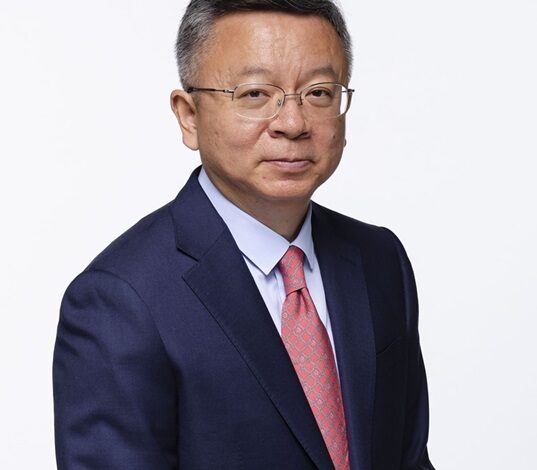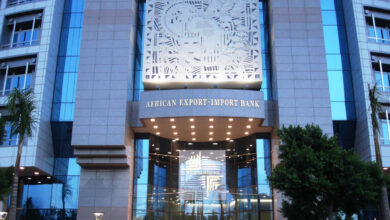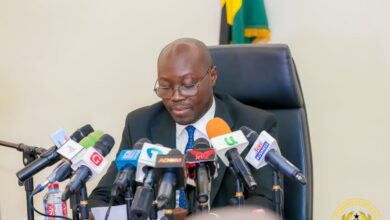IMF okays $360m disbursement for Ghana

THE International Monetary Fund (IMF) has completed the third review of its $3 billion, 36-month Extended Credit Facility (ECF) programme with Ghana, giving the country’s economic recovery efforts a significant boost.
The review unlocks immediate disbursement of approximately $360 million, bringing the total funds disbursed to Ghana under the arrangement to $1.9 billion since its approval in May 2023.
Economic Recovery Anchored by Reforms
In its statement, the IMF applauded Ghana’s policy and reform measures, which have delivered “encouraging results.” These reforms have been instrumental in stabilizing the economy after the severe financial and economic pressures experienced in 2022.
The Fund highlighted that the programme has provided a credible framework for adjusting macroeconomic policies and launching comprehensive reforms aimed at restoring macroeconomic stability, achieving debt sustainability, and fostering inclusive growth.
“These efforts are yielding results,” the IMF noted, pointing to rapid growth recovery, a gradual decline in inflation, and improvements in fiscal and external positions. However, the Fund cautioned that while the medium-term economic outlook remains positive, there are risks that must be carefully managed. Among these are challenges within the energy sector and potential fiscal pressures associated with the upcoming general elections.
Performance Metrics and Debt Restructuring
The IMF reported that Ghana has met all quantitative performance criteria and indicative targets for the third review. Progress on structural reforms, though delayed in some areas, has been described as “good.”
The government’s achievements in debt restructuring were singled out for commendation, particularly the successful restructuring of domestic debt and the Eurobond exchange, both of which were aligned with the programme’s parameters.
Additionally, Ghana has intensified negotiations with external commercial creditors as it works towards completing a comprehensive debt restructuring process. This effort is being conducted under the G20 Common Framework, which emphasizes comparability of treatment among creditors.
Fiscal Consolidation on Track Despite Pressures
Ghana’s fiscal management has shown resilience, with the country on track to achieve a primary surplus of 0.5% of GDP, despite unexpected spending pressures linked to drought conditions and challenges in the energy sector.
Looking ahead, the government aims to achieve a 1.5% GDP primary surplus by 2025 through a combination of domestic revenue mobilization and expenditure rationalization. Notably, these adjustments are being designed to safeguard vulnerable populations by expanding social support programmes.
The IMF emphasized the importance of continued fiscal discipline. This includes strengthening tax administration, modernizing the fiscal responsibility framework, improving public financial management, and enhancing the governance of State-Owned Enterprises (SOEs). Addressing inefficiencies in the energy and cocoa sectors was also highlighted as critical to reducing fiscal risks.
Role of the Bank of Ghana
The Bank of Ghana (BoG) has been credited with maintaining a prudent monetary policy stance, which has supported the steady decline of inflation and the rebuilding of international reserves.
The central bank has also taken proactive measures to bolster the stability of the financial sector, including initiating recapitalization efforts for state-owned banks and strengthening regulatory oversight to promote resilience among private financial institutions.
The IMF emphasized the need for the BoG to remain vigilant in its monetary policy to address potential upside risks to inflation. Enhancing exchange rate flexibility was also highlighted as key to maintaining economic stability.
Call for Sustained Structural Reforms
The IMF underscored the critical role of structural reforms in creating an enabling environment for private sector investment and sustainable job creation. It encouraged the government to stay the course on reforms, particularly those aimed at enhancing governance, transparency, and public sector efficiency.
Deputy Managing Director of the IMF, Bo Li, reiterated the importance of steadfast programme implementation. “Ghana’s economic strategy is delivering on its objectives, with the economy showing clear signs of stabilization,” he stated. However, he cautioned that sustained efforts are essential to fully restore macroeconomic stability and achieve long-term economic resilience.
Energy Sector Challenges and Election Risks
The IMF flagged challenges in the energy sector as a pressing concern. The sector’s inefficiencies pose fiscal risks that could undermine Ghana’s economic gains if not promptly addressed.
The upcoming general elections also present risks, particularly in terms of fiscal discipline. The IMF urged Ghana to remain committed to its reform agenda before, during, and after the elections to ensure that the economic recovery stays on track.
As Ghana continues its economic recovery journey under the IMF-supported programme, the Fund has reiterated its commitment to supporting the government’s efforts to stabilize the economy, achieve debt sustainability, and foster inclusive growth.
The successful completion of the third review represents a vote of confidence in the government’s reform agenda and provides the financial and policy support necessary to sustain momentum.
The IMF’s endorsement sends a positive signal to investors and development partners, reinforcing Ghana’s resolve to overcome its economic challenges and chart a path toward sustainable development.
The coming months will test the country’s ability to maintain fiscal discipline and implement critical reforms, even as it navigates the complexities of a competitive election season.
Top of Form
Bottom of Form




